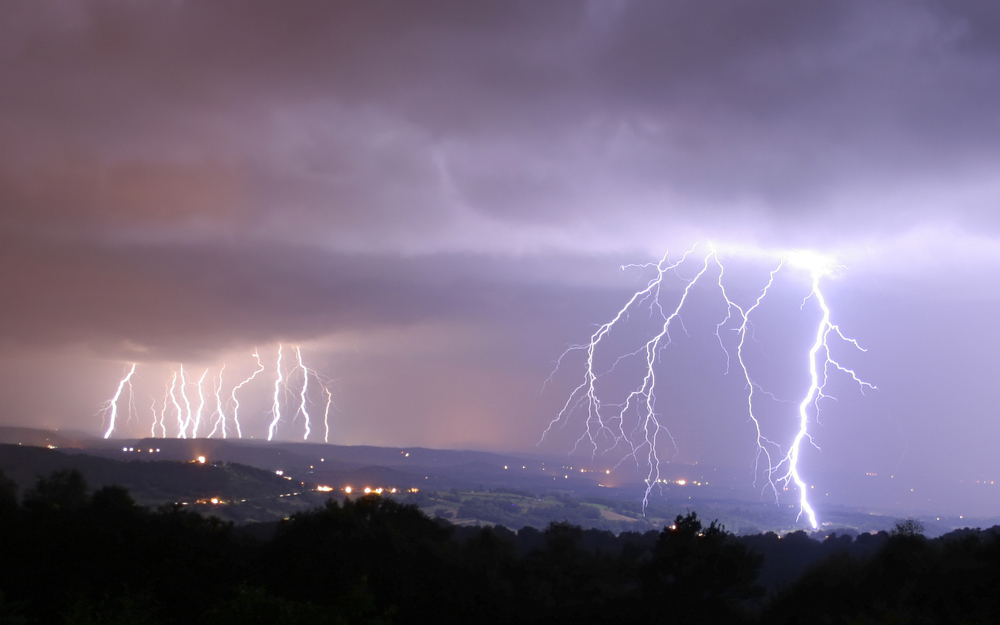
People seek assistance from their insurance providers after severe storms destroy their residential buildings and personal belongings. However, lately, more homeowners are having their claims denied because of a term hidden in their policy: the “Act of God” clause. Storm damage claimants who received a denial after their submission can find support in their situation. Insurance companies now use this clause to deny claims, resulting in financial difficulties for policyholders and dissatisfaction with insurance policies. The “Act of God” clause operates in a specific way, which you need to understand to manage your claims process better. To protect your home and finances, it’s essential to know what to look for and how to respond.
1. What Is the “Act of God” Clause?
The “Act of God” clause is a provision in many insurance policies that excludes coverage for events considered outside human control. Think earthquakes, hurricanes, tornadoes, or floods. These are natural disasters that insurers argue can’t be prevented or predicted. The primary SEO keyword for this article, “Act of God clause,” refers to these very situations.
Insurance companies include this language to limit their exposure to massive losses from catastrophic events. If a storm damages your roof, for example, your insurer might claim the damage was caused by an “Act of God” and deny your claim, even if you thought you were covered. The definition of what qualifies as an “Act of God” can be vague, and that’s where many disputes begin.
2. How Insurers Use the Act of God Clause to Deny Claims
Insurance companies are becoming more aggressive in using the Act of God clause to reject storm damage claims. After a major weather event, adjusters may inspect your property and decide the damage was caused by forces beyond anyone’s control. This gives them an opening to deny your claim, even if your policy includes coverage for wind or hail damage.
In some cases, insurers may argue that only certain types of storm damage are covered, while others fall under the Act of God clause. For example, they might cover wind damage but not flooding—even if both happened during the same storm. Policyholders are often left confused and frustrated, unsure of how to challenge the decision. If you find yourself in this situation, it’s important to review your policy and consider seeking help from a public adjuster.
3. The Fine Print: What Your Policy Really Says
Many people don’t read the details of their homeowners’ insurance policy until something goes wrong. The Act of God clause is often hidden in the exclusions or limitations section. It’s written in legal language that can be hard to interpret. Insurers rely on this confusion to limit payouts.
Take the time to review your policy’s definitions and exclusions. Some policies specifically name the events that are not covered. Others leave it open-ended, saying only that “unforeseeable acts of nature” are excluded. If the Act of God clause is vague, you may have room to argue your case. Keep copies of all correspondence with your insurer and document the damage thoroughly.
4. What Homeowners Can Do to Protect Themselves
Just because your claim was denied under the Act of God clause doesn’t mean you’re out of options. Start by asking your insurer for a detailed explanation of the denial. Request a copy of the adjuster’s report and compare it to your policy. Sometimes, claims are denied in error or because the insurer is betting you won’t push back.
If you believe your damage should be covered, consider filing an appeal. You can also contact your state’s insurance regulator to file a complaint. Some homeowners hire an independent adjuster to get a second opinion. In some cases, legal action may be necessary, but this should be a last resort. The key is to stay organized and persistent. Document every interaction, keep records, and don’t accept a denial without a fight.
5. Why the Act of God Clause Is Becoming More Common
Severe weather events are on the rise, and so are insurance claims. To limit losses, insurers are tightening policy language and relying more heavily on the Act of God clause. This shift helps them manage risk but puts more responsibility on homeowners to understand their coverage.
Some industry experts predict that as storms become more frequent, the use of the Act of God clause will continue to grow. This means more homeowners may face denied claims unless they take steps to protect themselves. If you live in an area prone to severe weather, review your policy every year and talk to your agent about what’s covered—and what isn’t.
Take Charge of Your Insurance Coverage
The Act of God clause serves as a significant obstacle for storm damage insurance claims but understanding it can help you defend your position. Don’t wait for a disaster to strike before familiarizing yourself with your policy. Review all the details and ask questions until you fully understand your insurance coverage for upcoming storms. If your claim is denied, don’t lose hope; there are ways to appeal and pursue a proper resolution.
Have you ever had a storm damage claim denied because of the Act of God clause? Share your experience or questions below. Your story could help others facing the same challenge.
What to Read Next…
- What Insurance Fine Print Could Void Your Entire Claim
- Top 3 Water Damage Claims Home Insurance Actually Covers
- 7 Homeowner Insurance Exclusions That Void Entire Policies
- The Insurance Clause That Could Nullify Your Entire Estate Plan
- 8 Insurance Riders That Sound Helpful But Add No Value
The post The “Act of God” Clause Insurance Companies Are Using to Reject Storm Damage Claims appeared first on The Free Financial Advisor.







